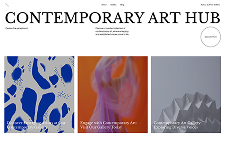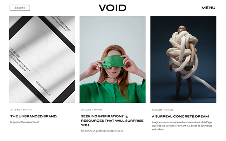- Nov 19, 2025
- 11 min read
Updated: Nov 25, 2025

Deciding to build a website as a DJ is the ultimate way to grow your career, share your music and book more gigs. It’s your online home where fans and clients can discover your sound and connect with you.
Your DJ website is both a business card and an online home for your audio creations and for your DJ business. It’s a tool for spreading your music and your brand name to listeners and potential customers, near and far.
Learn more:

Building a website for your business, passion project or side hustle should be easy and exciting. With Wix, you can customize and launch a professional website in minutes, no coding needed. We’re all about simplifying the process so you can focus on what matters most–bringing your ideas to life. So why wait? Let’s get started on creating the website you’ve always wanted.
TL;DR: How to create a DJ website
Choose a website builder like Wix and pick a mobile-friendly template that matches your vibe. Customize it with your colors, fonts and images to make it your own. Add essentials like your bio, music or mixes, upcoming gigs and some great photos and videos.
Include a contact form or booking button so clients can easily reach you. Add social media links and testimonials to build trust. Your website should be the go-to spot for fans and clients to discover your music and book your services.
Features of a great DJ website
Feature | Why it matters |
|---|---|
Music player | It lets visitors instantly hear your sound. Sharing your best mixes and tracks directly on your site helps attract fans and clients. |
EPK (electronic press kit) | Promoters get everything they need in one place. Including your bio, photos, music and contact info makes booking you simple. |
Events calendar | It keeps fans and clients in the loop. Showing your upcoming gigs proves you’re active and in demand. |
Booking form | Clients can easily reach out to hire you. A simple contact or booking form connects them directly to you. |
Photo and video gallery | High-quality visuals show off your energy and style, giving people a feel for what it’s like to experience your set live. |
How to create a DJ website
Now, as you start creating your own music website, pay close attention to the following items to make sure you’re making the best site that you can.

01. Choose a website builder that supports your DJ career
Before designing your site or uploading your first track, start by choosing a platform that can keep up with how quickly your gigs, mixes and bookings change. Look for a website builder that gives you creative flexibility without requiring you to learn code, so you can spend more time on your sets and less time dealing with tech.
Make sure you can connect a custom domain name that reflects your DJ name—it becomes your digital home base and helps promoters, fans and clients remember you.
Built-in hosting, strong uptime and SSL protection should also come standard, especially if you plan to sell mixes, take deposits or collect booking requests.
If you want to share or sell your music directly from your site, choose a platform with an advanced audio player. Tools like Wix Music let visitors stream, download, buy and even share your tracks, helping you promote your sound while earning from it.
Expert tip from Esin D. Habif, product marketing lead at Wix:
"Choose a website builder that allows you to make fast pivots based on your business needs. If, from one day to the next, you need to add events or an online store, make sure your website builder makes that possible for you."
Explore these website building tips to make your site shine.
02. Pick a template that matches your DJ style
Your website should give people a feel for your sound before they even hear the first beat. Start with a music-focused template that highlights your mixes, visuals and personality. A good template makes it simple to add your logo, upload tracks, embed videos and display tour dates or club appearances.
If you want your audio front and center, choose a layout with a prominent player and room for playlists or set previews. Visual-heavy DJs might prefer bold backgrounds, striking typography or full-screen images that mirror their aesthetic.
When selecting a template, also consider fonts. Pick readable, stylish fonts that match your brand and make your content easy to scan. Using 2–3 cohesive fonts across headings, body text and buttons helps your site feel professional and polished.
Pro tip: Think about your content first. If your homepage needs space for a mix reel or a big hero photo, choose a template built for that format.
Explore free music website templates:
03. Build the core pages your audience expects
Once your design is in place, create the foundational pages that help visitors understand who you are and how to book you. Your homepage should showcase your best work—featured mixes, a quick intro and clear next steps like listening, watching or booking.
Other must-have pages include:
About us page: Share your story, musical style and experience. Think of this as a mini EPK that introduces you as a professional DJ to fans, promoters and potential clients. Include high-res photos and key highlights to make it easy for visitors to connect with your brand.
Music page: Embed a music player or link to streaming platforms like Spotify and SoundCloud so visitors can listen to your mixes and original tracks directly on your site. Tools like Wix Music also let fans download or purchase music if you want to monetize your content.
Events/gigs: Keep your schedule current. If you play public events regularly, a monthly events calendar is an effective way to display your upcoming shows. If most of your bookings are private, a blog or news section works well to announce public gigs without showing empty dates. Both options are easy to set up and update in Wix. Include ticket links or booking details where relevant.
Electronic press kit (EPK): A dedicated page with your bio, high-resolution images, technical requirements and testimonials for promoters and media.
Contact us page: Add a form for inquiries or price quotes, including fields like event type, location and hours. You can also integrate a scheduling tool so clients can book directly online.
Mailing list signup: A form to build a direct line to fans and promoters, paired with incentives like a free mix or sample track to encourage signups.
Merchandise (optional): If you sell music, apparel or branded items, include an online store to make it easy for fans to shop.
If you want fans or promoters to explore more, a multi-page site gives you room to expand. If you’re just getting started, learning how to create a one-page website can still work well.
Learn more:
04. Make it easy for people to book you
In many ways, starting a career as a musician is like starting a business. Remember, your DJ website is both a celebration of your mad skills and a business tool that should help you get more paid work. You can add to your music website features that make it easier for potential customers to get in touch with you or to book your services directly.
You can ask site visitors to send in requests for a price quote using a contact form app. Set up the form with fields like event size, location, venue type, estimated work hours, number of people and all other considerations that you take into account when you negotiate a price with clients.
To fill up your working calendar with paying gigs, use Wix Booking to allow site visitors to book you for events right there and then. You can also use the booking app to charge a deposit or the entire fee (in case you have fixed prices) and easily manage your working schedule. Here are a few examples of music websites you can get inspiration from.
Need inspiration? Explore DJ name ideas or create a strong stage name with a DJ name generator to help your brand stand out.
05. Highlight your best visuals
Even though your art is not the visual kind, you certainly want your website to include exciting visual material. First of all, because great images significantly improve the website’s overall design, but also because people react to images – especially to photos – in a different way than they do to words or sounds. Your site photos can add another layer of familiarity with yourself as a musician and a professional that is especially valuable if you plan to attract potential clients online.
Investing in a professional photography session is worth considering. You can hire a photographer to document one of your sets, to capture your own work in real-time as well as the mood of the crowd. Put some thought into the venue where you want this session to take place and opt for a setting that corresponds with your style as an artist. If you do play at events often, you could usually get in touch with the hired photographer to coordinate a quick shoot.
If you have access to video production equipment, making a real of your work in action is also a great option for the site’s visual aspect. Because you need the video to have excellent audio quality, it’s probably only worthwhile if that’s technically possible. Looking for visual inspiration? Check out this collection of best musician websites for inspiration.
On top of photography, make sure you have a logo that really represents what you do. Using a DJ Logo Maker will give you the inspiration and tools you need to stand out.

06. Put your music front and center
When creating a music website, make sure website visitors can listen to your sounds with ease and opt for an advanced audio player. Wix Music offers the perfect online music player for your website. This player doesn’t simply play your tunes, it allows your visitors to download them for free or for a fee, so you can actually profit from your music directly through the player. The Wix Music player can be easily customized to match the look and feel of your website. Oh, and it also lets listeners share your work on their social channels and promote your music to their own friends. Here you can discover all the great things that the Wix Music Portfolio player can do for you.
In addition to putting together a DJ business plan and creating an EPK (Electronic Press Kit) to give a professional overview of your sound, you should upload tracks that demonstrate your creativity and versatility as a musician. If you play at events, you could add a variety of samples that correspond with different types of settings – wedding reception, company party dance-floor, etc. If your focus is mostly on clubs, use a mix of original remixes and partial setlists to demonstrate your skills.
Pro tip: Use DJ name generator to come up with a unique and catchy stage name.

07. Add a mailing list
A mailing list is one of the most powerful tools for DJs. It gives you a direct line to your fans, promoters and clients, letting you share new mixes, announce gigs and give behind-the-scenes updates straight to the people who want to hear from you. Unlike social media, email is a space you own, free from algorithms that limit visibility.
Add signup forms in strategic spots across your website—your homepage, footer, blog posts or even as a pop-up when someone is about to leave. To encourage signups, offer something valuable like a free mix, sample track or wallpaper download. Small incentives help build trust and reward fans for joining your community.
Once people are on your list, stay consistent. Send updates about new releases, upcoming events or exclusive content. Even short, engaging messages keep fans connected and remind promoters and clients that you’re active and professional. Over time, your email marketing becomes one of your most reliable tools for promoting shows, new tracks and special offers.
08. Optimize your DJ website for SEO
SEO helps your site get found by people searching for DJs in your area, your style or at events. Start with a website builder that includes built-in SEO tools like editable meta titles and descriptions, clean URLs, alt text for images and mobile-friendly layouts.
Don’t stop at the homepage. Blog posts about gigs, mixes or DJ tips can also be optimized with clear headings, descriptive titles and relevant keywords. Internal links between pages, properly tagged images and engaging content help search engines understand your site.
Even small updates can make a difference in how easily fans, promoters and booking agencies discover you online.
Expert tip from Sharon Hafuta, SEO blog editor at Wix:
“Think of SEO as the digital version of getting on the main stage. When it’s done right, the right listeners and bookers will find you.”
SEO isn’t a one-time task. Regularly update your content, add new mixes and optimize images and posts so your website stays relevant and continues to attract the right audience.
09. Launch and promote your site
Before you hit publish, check every part of your website. Test your audio player, booking forms, links and media galleries. Preview your site on desktop and mobile to make sure it looks professional everywhere. A smooth first experience sets the tone for fans and potential clients.
Set up analytics tools like Google Analytics so you can track engagement and understand how visitors interact with your site. This insight helps you make informed updates over time.
Once your site is live, share it everywhere. Add it to social media profiles, include it in your email signature and feature it on flyers or promotional materials. Submit your site to music directories or industry listings to increase visibility. Collaborate with other DJs, write guest posts or create content that helps people discover your work.
Even on a tight budget, you can promote your site effectively. Social sharing, cross-promotion with other artists and optimizing posts for search engines all help you get noticed. Keep your website updated with new tracks, photos, videos and upcoming events. Your site is a living representation of your DJ career and regular updates keep it professional, engaging and ready to grow your audience.
How to create a DJ website FAQ
Do DJs need a website?
Yes. A website is your DJ business's home base, a place where you can share your portfolio, reviews and a simple way for clients to book you. Unlike social media, your website is all yours, giving you the freedom to attract the right clients and build your reputation on your terms.
Do DJs have websites?
Take a look at successful DJs and you’ll notice they all have one thing in common—a website. It’s their go-to spot for sharing media kits, contact details and event schedules. A website shows you mean business and helps you land those dream gigs.
What equipment do I need to start as a DJ?
Starting out as a DJ? You’ll need the basics to get mixing. Grab a DJ controller that works with your laptop and DJ software to manage your tracks. Don’t forget a solid pair of headphones so you can cue up your next song like a pro.
Do I need an LLC to be a DJ?
Setting up an LLC is a smart move for DJs. It keeps your personal finances separate from your business and protects you from any unexpected issues. Plus, it’s a great way to show you’re serious about your craft as you start booking paid gigs.













